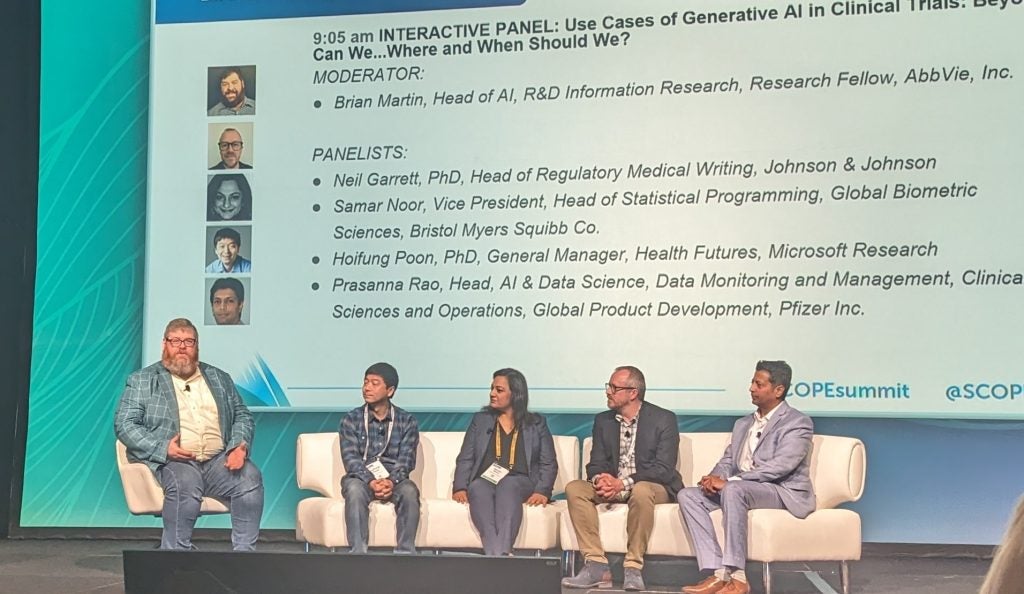Artificial intelligence (AI) is a great assistance for clinical trials but its use should still be approached with some caution, experts have said.
The premier event for clinical trial strategy and operations, Summit for Clinical Ops Executives (SCOPE) 2024, opened its second day (12 February) with a panel discussion on how AI should be used in clinical trials, in Orlando.
AI is used in all areas of clinical trials from drug development, recruitment, protocol creation, trial setup, data processing, and more. As the technology continues to develop, it will be utilised in other areas of clinical research, but there is still hesitation about where to use AI instead of or in addition to human intelligence.
While moderating the session, Brian Martin, head of AI for AbbVie said: “Technology is no longer the question. The questions that remain are the ‘should we’ questions; the questions of security, privacy, ethics, compliance.
“The governance framework is really missing in so many places right now. Regulators are scrambling to see how they should put things in place.”
Hoifung Poon, general Manager at Microsoft Health Futures, spoke about how the technology could take over from a human, but this may not be best for all clinical trial models. “I see AI as far from perfect, but I see a sweet spot using these services with a human to make them superhuman.”
Poon added that he hopes that the future of AI can help predict disease progression in patients, but that does remain a long way off.
Coming from an AI data processing perspective, Samar Noor, head of statistical programming for Bristol Myers Squibb, said AI has been very helpful, but there are concerns about inherent bias in the process.
AI use in data processing removes the human bias. But Noor also points out that a large portion of BMS’ data is from US-based trials, which adds an element of bias. Noor adds that more data is being processed from European trials, but there is still work to do in Asia. “We have to remember that AI will only be as good as the data sources that you feed so it is important that we consider bias.”
Noor also spoke about ethics around the use of AI and privacy laws to ensure that trial sponsors remain compliant while using technology to process data.
















